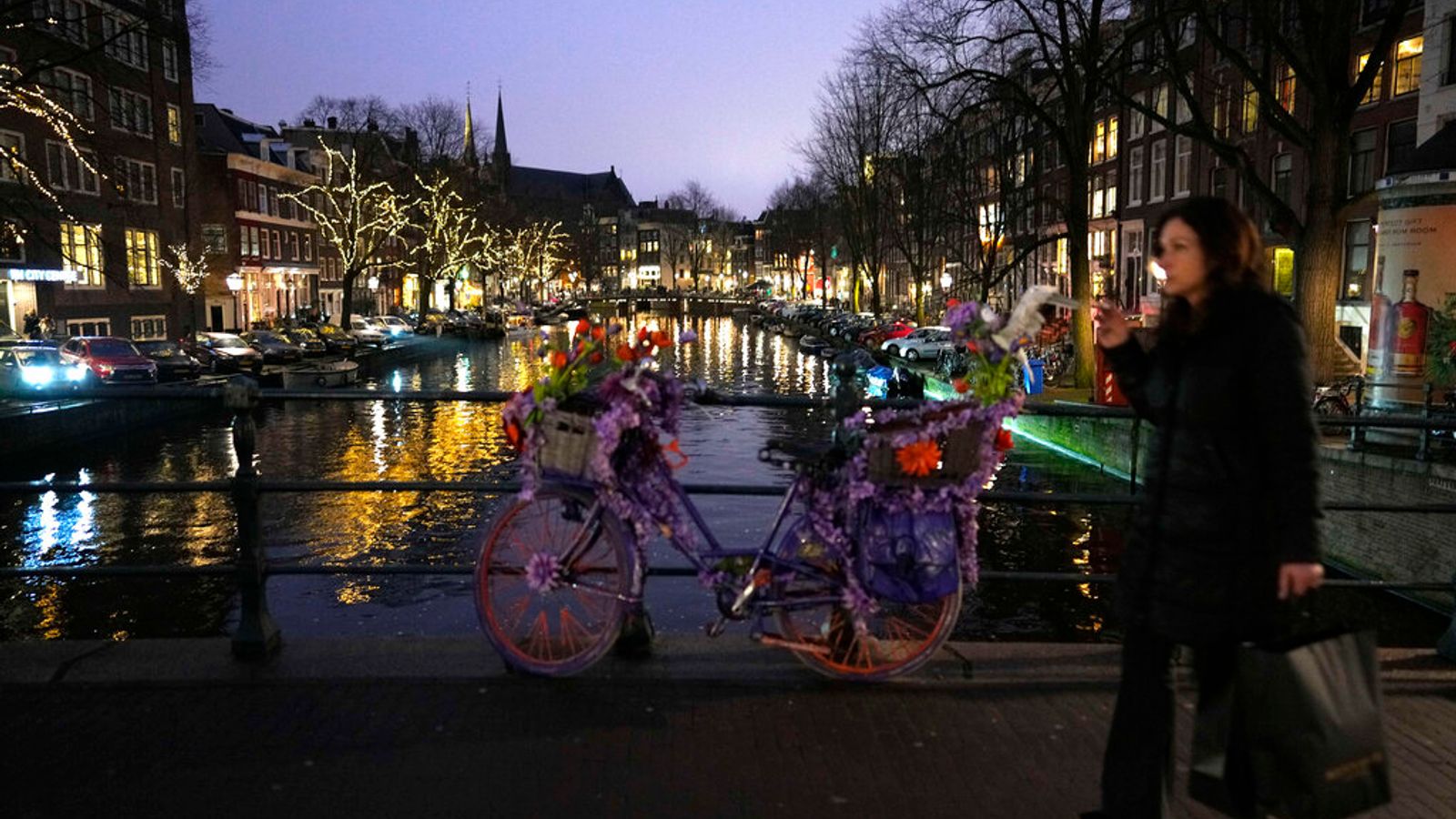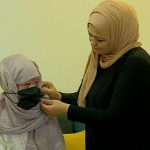The Netherlands will enter into a tough lockdown from tomorrow morning to curb the spread of Omicron, with non-essential shops, bars, restaurants, and other public places to close.
Schools will also shut from Monday, and the lockdown will run until at least 14 January, Prime Minister Mark Rutte has announced.
He added it was “unavoidable because of the fifth wave caused by the Omicron variant that is bearing down on us.”
Follow the latest COVID updates in our live blog
While the terms of the latest restrictions have not been fully announced, local media reports that it means that hairdressers and gyms will also shutter their doors, and it will be enforced until 14 January.
Shops, bars and restaurants in the country are already under a 5pm to 5am curfew, which was introduced at the end of last month.
Earlier today, the Dutch National Institute for Public Health (RIVM) reported a total of more than 2.9 million COVID cases since the start of the pandemic with 20,420 reported deaths.
COVID: Police clash with protesters as thousands march through London against new restrictions
COVID-19: Extra restrictions needed within days to stop hospitals being overwhelmed by Omicron, govt scientists warn
COVID-19: Strictly Come Dancing star Ugo Monye says celebrities who don’t get vaccinated are ‘selfish’
The institute also reported 14,616 new infections across 24 hours.
Elsewhere in Europe, worried ministers in France, Cyprus and Austria have tightened travel restrictions. while Paris has also cancelled its New Year’s Eve fireworks.
Denmark has closed theatres, concert halls, amusement parks and museums over the Christmas period, and Germany’s regional health ministers have urged the national government on Saturday to introduce tougher rules on people arriving from the UK.
Please use Chrome browser for a more accessible video player
A warning to the UK
It comes as pressure mounts on minsters in England to impose similar curbs, as Omicron continues to surge around the country.
Restrictions elsewhere in Europe could serve as a precursor to events in the UK, after government advisers said that a touch circuit breaker should be brought in to protect hospitals against the virus, which continues to spread in high numbers.
France has already taken action against Britons, banning travellers from the UK from entering the country without a compelling reason (such as visiting family).
Government scientists want time for the booster rollout to get needles in the arms of more people and buy some time to slow the spread of COVID-19, after daily cases jumped up to record levels this week.






















